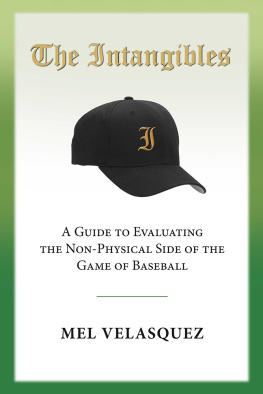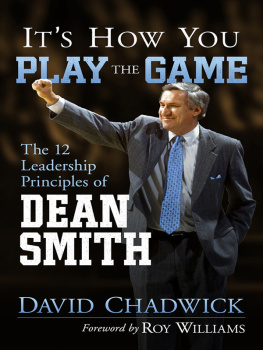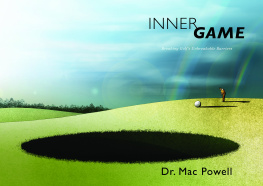BETTER
SUNDAYS
BEGIN
ON
MONDAY
David
W. Manner
BETTER
SUNDAYS
BEGIN
ON MONDAY
52 Exercises for Evaluating
Weekly Worship


BETTER SUNDAYS BEGIN ON MONDAY:
52 EXERCISES FOR EVALUATING WEEKLY WORSHIP
Copyright 2020 by Abingdon Press
All rights reserved.
No part of this work may be reproduced or transmitted in any form or by any means, electronic or mechanical, including photocopying and recording, or by any information storage or retrieval system, except as may be expressly permitted by the 1976 Copyright Act or in writing from the publisher. Requests for permission should be addressed to Permissions, Abingdon Press, 2222 Rosa L. Parks Boulevard, Nashville, TN 37228-1306, or .
Library of Congress Control Number: 2020937420
ISBN: 978-1-7910-0473-6
Scripture quotations are taken from the Common English Bible, copyright 2011. Used by permission. All rights reserved.
20 21 22 23 24 25 26 27 28 2910 9 8 7 6 5 4 3 2 1
MANUFACTURED IN THE UNITED STATES OF AMERICA
Contents
Acknowledgments
Thank you to my wife, Karen, for always making me better in everything I do or even attempt. She is one of the most creative people I know and, consequently, regularly challenges me to think gray spiritually, emotionally, and intellectually. Thank you to my daughter, Jessa, for always being the life of any party and for surpassing our dreams about the joy of being a parent. Thank you to my son-in-law, Cullen, for making our daughter happy, completing our family, and loving her even more than we do, even though I didnt think that was possible.
I owe a debt of gratitude to my parents, Bill and Clare Manner, for their support and encouragement throughout my life and ministry. This book is just one of many examples of how their prayer support helps me finish well. Thank you for your legacy of exemplary spiritual and married lives. If I am half the person you have been and continue to be, then my life will have been a success.
I am grateful to the Creative Team at Western Hills Church, Topeka, Kansas. You guys model every week what healthy worship evaluation looks like in an atmosphere of brutal honesty rooted in profound trust. You remind me through your worship-planning and implementation that churches are better when they try to figure things out together.
Thank you to the churches, pastors, worship leaders, and convention staff of Kansas-Nebraska Convention of Southern Baptists for allowing me to try some of these principles out on you.
I am indebted to the Robert E. Webber Institute for Worship Studies and its faculty for expanding my limited understanding of worship renewal and helping me not to coast through ministry this last decade.
Lastly, I would like to express posthumous thanks to Dr. Paul B. Clark, Jr., who not only served as a colleague in convention work and as a doctoral cohort collaborator but also walked with me as a close personal friend and worship renewal practitioner for over three decades. I am a better minister and worshipper having known him.
Introduction
Some worship-planning teams have implemented an evaluative process after their worship services each week. They meet regularly to reflect on what did and didnt work. This after-service evaluation is a postmortem of what has already occurred. By definition, a postmortem occurs only after death or after the damage has already been done. Postmortem evaluators say, Well do it better next time.
What if, in addition to the worship service postmortems, those individuals or planning teams also implemented a process of worship service premortem evaluations? Premortem is the process of applying prospective hindsight before an event or project occurs. Prospective hindsight is considering what might occur by envisioning the future outcome or imagining results based on the information at hand. Premortem evaluators say, Lets get it right this time.
Maybe its possible through these collective pre- and post-evaluative processes to improve, strengthen, and renew our worship services as they are being birthed, rather than just having to autopsy them after their passing. It should be noted that last-minute worship-service planning makes premortems virtually impossible and often contributes to painful postmortems.
Breaking down game film is a discipline sports teams often incorporate after each game. They review and discuss game videos in order to identify mistakes, make adjustments, consider radical changes, and highlight successes. The ultimate goal of this type of analysis is to facilitate individual and team improvements that will positively affect subsequent games. The fundamental reason why a team needs adjustments is not always evident in the middle of the game. Breaking down or evaluating all of the important elements after a game gives coaches and players the opportunity to isolate and assess individual plays and players in a more relaxed setting, away from the time constraints and pressures of the game.
So why arent individual pastors, worship leaders, and even worship-leading teams regularly incorporating similar evaluative practices? One of the primary reasons is that implementing an individual or collaborative process of analyzing worship services or planning for upcoming services requires a deep level of humility, trust, and shared accountability. It also requires selfless leaders who are willing to sacrifice their own ideas, preferences, and interests for the greater worshipping good of the congregation.
Collaborative observations and the wisdom with which to respond to those observations will always be strengthened when the ages, gifts, experiences, and perspectives of the collective group are diverse. Advantages to enlisting an internal evaluation team include: candid responses from individuals and groups who already understand the doctrines, philosophies, personnel, and policies of your congregation; evaluations are from trusted leaders who have a vested interest in the process and results; and a greater degree of accountability for implementing the evaluation results in a timely and benevolent fashion. If you see the value in developing an evaluative team, it should include pastors, musicians, technicians, artists, interior designers, builders, multiple generations, and multiple ethnicities. Every element of the worship service, including the sermon, must be fair game for this type of evaluation to be successful.
A balanced approach to worship evaluation can be summative in that a congregation can learn from its previous worship failures and successes. But it can also be formative since it occurs during the development and conceptual worship service stages.
Better Sundays Begin on Monday offers weekly stand-alone foundational worship considerations to help youindividually or as a teamask worship questions evaluatively rather than defensively. The weekly evaluation considerations are not contingent on the size of your church or its staff, so, consequently, they will apply to single-staff or multiple-staff congregations of various sizes, generations, and cultures. In addition to the weekly evaluation considerations of each chapter, several situational questionnaires are provided in the appendixes to help you and your team begin to dig a little deeper each week.
The fifty-two weekly evaluation considerations intentionally place more focus on a biblical, theological, and historical baseline worship philosophy rather than just service mechanics. So they will help you or your team first determine
Next page








